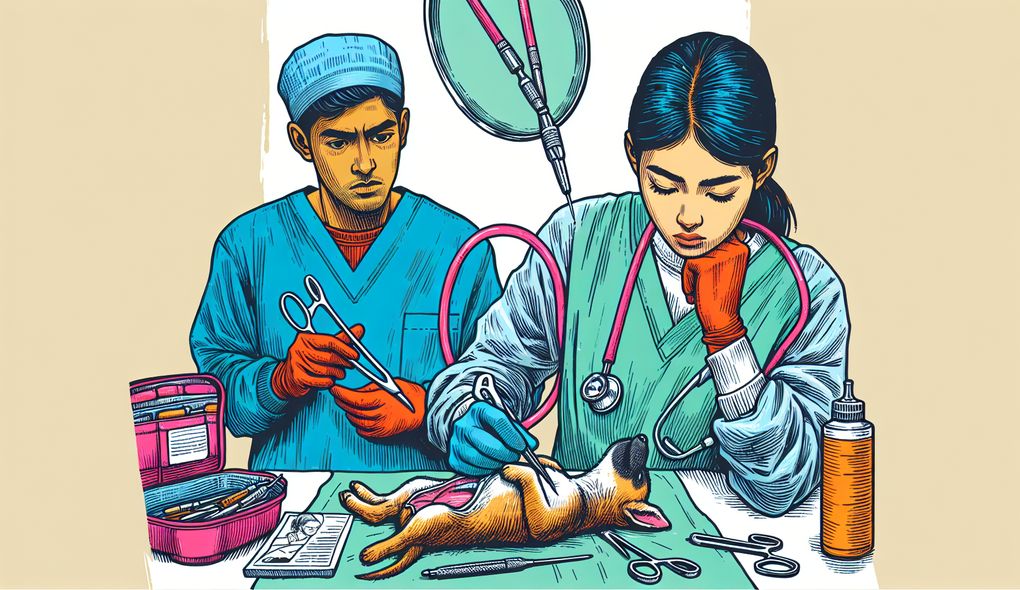What methods do you use to train and mentor less experienced surgeons and staff?
SENIOR LEVEL

Sample answer to the question:
When it comes to training and mentoring less experienced surgeons and staff, I believe in a hands-on approach. I like to start by assessing the strengths and areas of improvement for each individual. Then, I create tailored training plans and provide one-on-one guidance to help them develop their surgical skills. I also encourage them to observe surgeries and assist in procedures to gain practical experience. Additionally, I conduct regular meetings to address any questions or concerns they may have. It's important to foster a supportive and collaborative environment where everyone feels comfortable asking for help.
Here is a more solid answer:
I employ a multifaceted approach to train and mentor less experienced surgeons and staff. Firstly, I believe in leading by example and setting clear expectations for surgical excellence. I provide hands-on training and guidance, ensuring that each team member receives personalized attention. Regular performance reviews allow me to identify areas for improvement and tailor training plans accordingly. I also encourage continuous learning by organizing workshops and inviting veterinary surgical specialists to share their expertise. Open and effective communication is crucial in this process, and I maintain an open-door policy where team members can approach me with any concerns or questions. By fostering a collaborative environment and promoting professional growth, I aim to empower and develop the skills of my team.
Why is this a more solid answer?
The solid answer expands upon the basic answer by providing more specific details and examples. It addresses all the evaluation areas mentioned in the job description. It emphasizes the candidate's leadership and communication skills in training and mentoring less experienced surgeons and staff. However, additional information could be provided regarding the candidate's expertise in veterinary surgical techniques and their ability to handle multiple cases with attention to detail.
An example of a exceptional answer:
Training and mentoring less experienced surgeons and staff is a top priority for me. To ensure their success, I employ various methods tailored to individual needs. I start by conducting a comprehensive skills assessment to identify strengths and areas for improvement. Based on this assessment, I create personalized training plans that include hands-on experience, observation of surgeries, and assisting in procedures. I also utilize innovative technology, such as virtual reality surgical simulations, to enhance their learning experience. In addition to direct training, I organize regular team-wide skill-sharing sessions, where junior and senior surgeons exchange their knowledge and experiences. I believe in fostering a supportive environment through open communication, constructive feedback, and mentorship programs. By staying updated on the latest veterinary surgical techniques and attending conferences and workshops, I ensure that I can provide the most up-to-date training and guidance. Through this comprehensive approach, I aim to develop a highly skilled and cohesive surgical team.
Why is this an exceptional answer?
The exceptional answer goes beyond the solid answer by providing even more specific details and examples. It demonstrates the candidate's in-depth knowledge and expertise in training and mentoring less experienced surgeons and staff. The use of innovative methods, such as virtual reality surgical simulations, showcases the candidate's commitment to leveraging technology for enhanced learning. The mention of team-wide skill-sharing sessions and mentorship programs highlights the candidate's ability to foster a collaborative and supportive environment. Additionally, the emphasis on staying updated on the latest veterinary surgical techniques demonstrates the candidate's dedication to continuous learning and professional development.
How to prepare for this question:
- Reflect on your past experiences in training and mentoring less experienced surgeons and staff. Identify specific examples where you have successfully developed their skills and provided guidance.
- Research and familiarize yourself with the latest advancements in veterinary surgical techniques. Stay updated on industry trends and attend relevant conferences and workshops.
- Develop a plan for conducting skills assessments to identify individual strengths and areas for improvement in the surgeons and staff you would be training.
- Think about different methods and tools you can utilize to enhance the learning experience, such as virtual reality surgical simulations or hands-on workshops.
- Consider ways to create a collaborative and supportive environment within the surgical team, such as implementing mentorship programs or organizing skill-sharing sessions.
What are interviewers evaluating with this question?
- Leadership
- Communication
- Training and mentoring
- Veterinary surgical techniques

